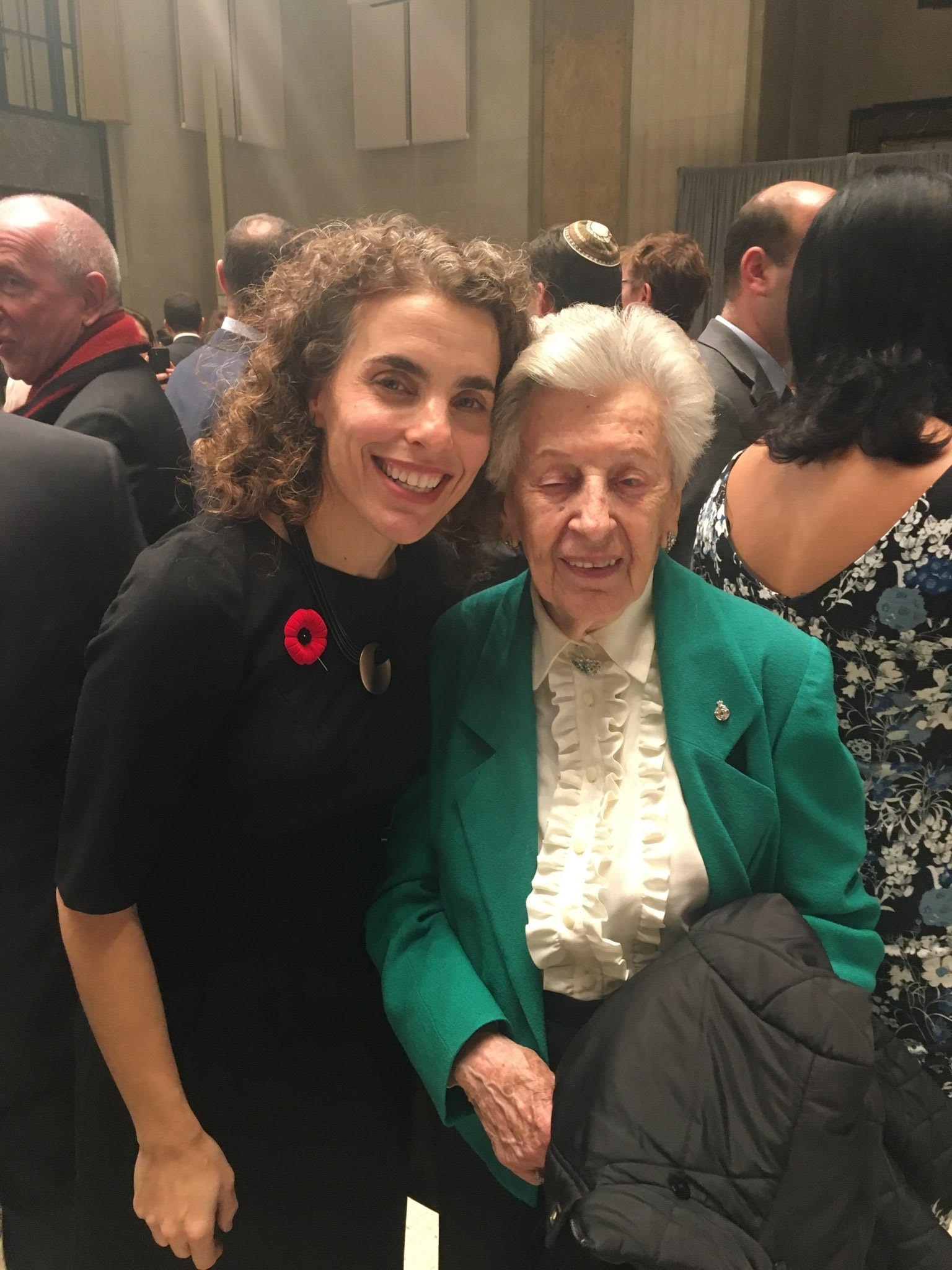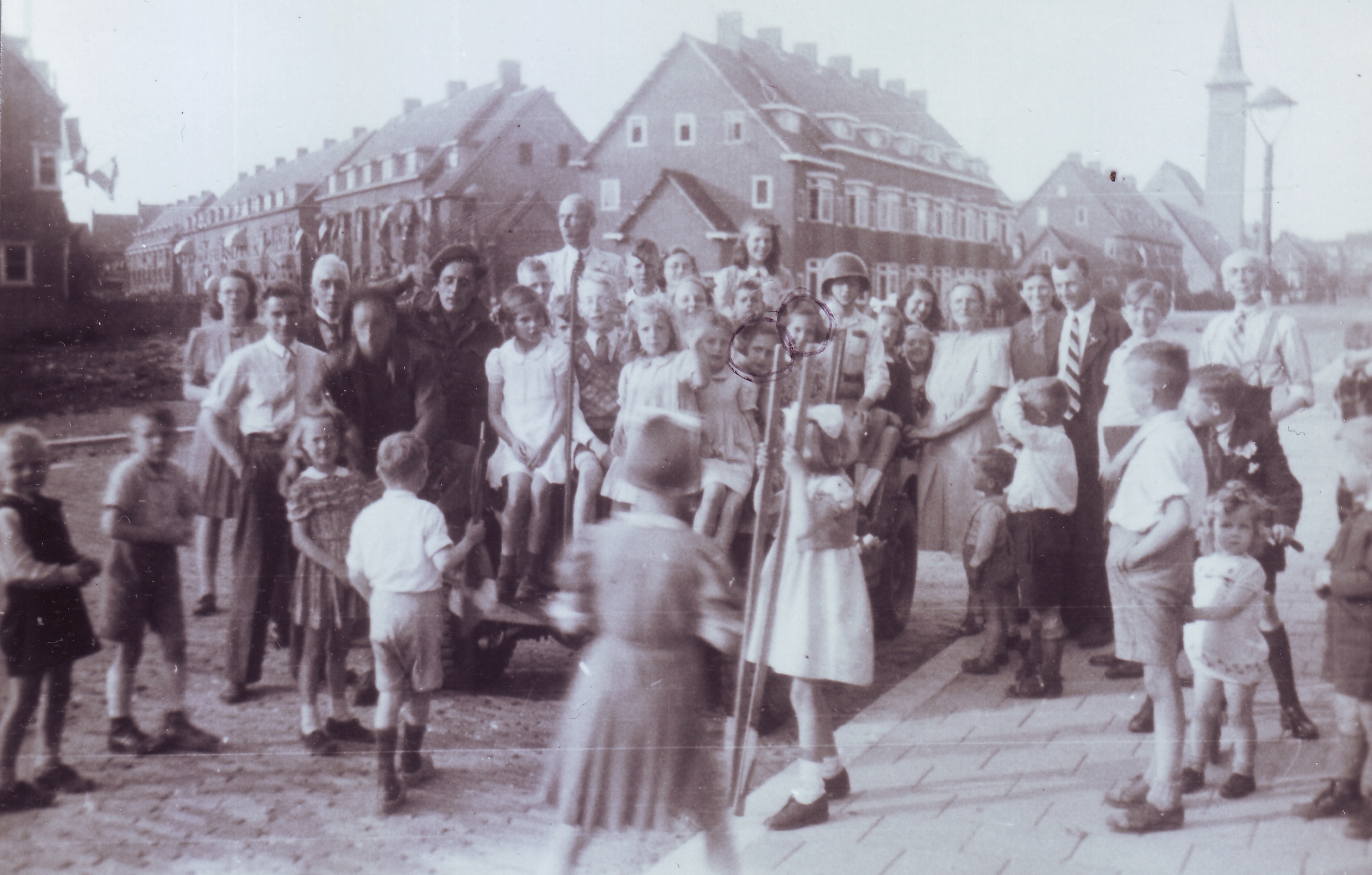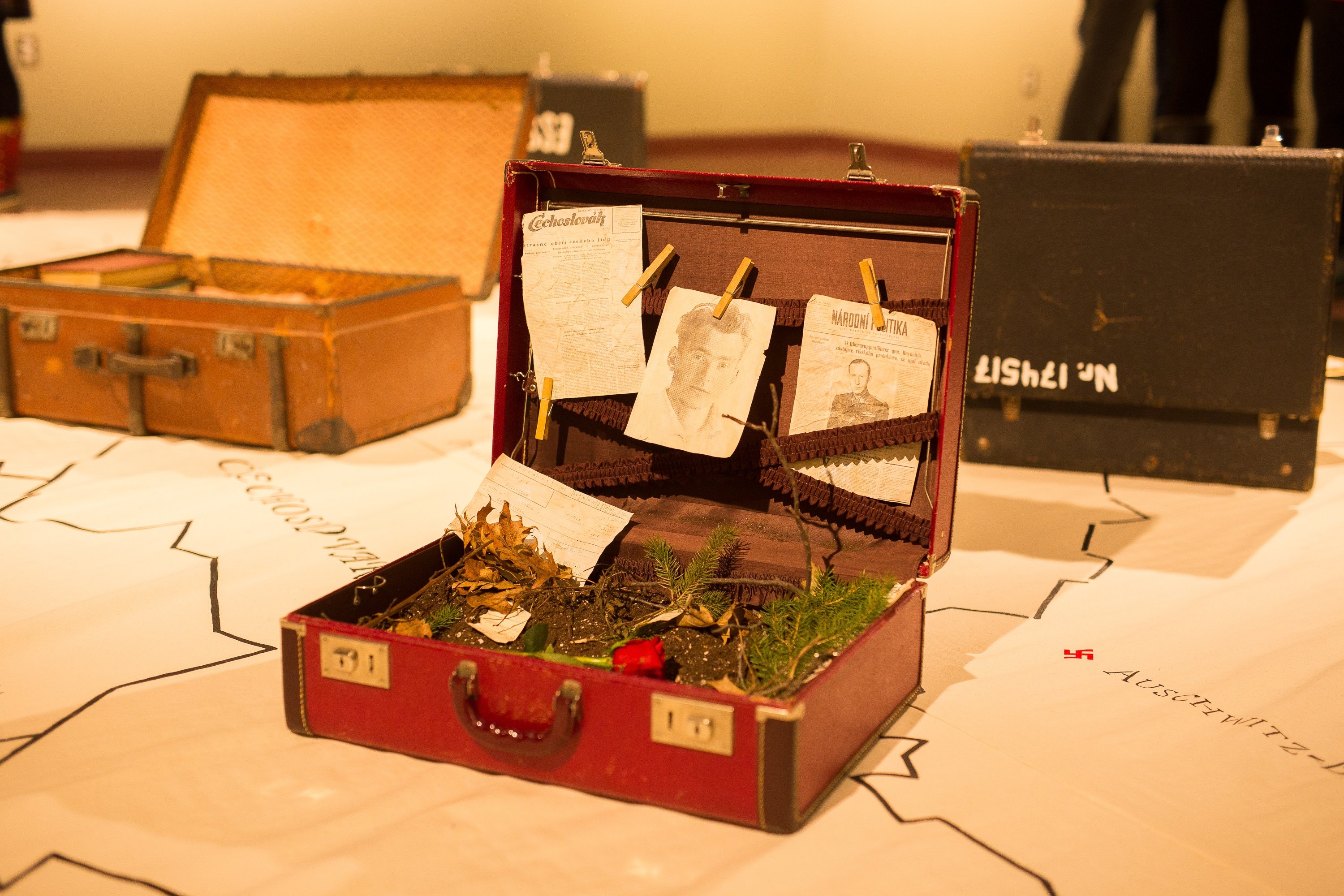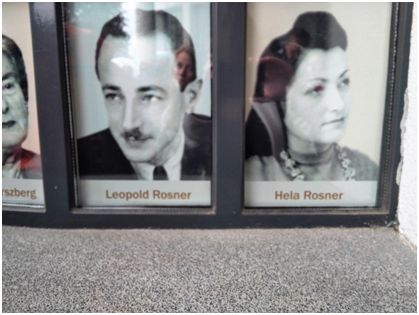This is the 2nd blog in a 2 part series. Click here to read Part 1 which discusses the project and art as a critical tool of inquiry.
“Trust is not just something that you ‘organize’, it’s earned over time”: Approaches to Gathering Trust-based Testimony and Research Methodologies
Posted by Charlotte Schallié and Ilona Shulman Spaar on March 4, 2021
Topics: Holocaust, Survivor Testimony, Museum Studies, Holocaust Education, Holocaust and Human Behaviour, Graphic novels
When Storytelling Intersects with Holocaust & Human Rights Education: An International Education Project Initiated in Canada
Posted by Charlotte Schallié and Ilona Shulman Spaar on February 25, 2021
This is the 1st blog in a 2 part series. Part 1 discusses the project and art as a critical tool of inquiry. Part 2 explores the process and approaches to putting together testimony and historian research methodologies for educators interested in teaching students what active historian work looks like.
Topics: Holocaust, Museum Studies, Holocaust Education, Holocaust and Human Behaviour, Inquiry, Graphic novels
Creating Meaningful Responses to Memoir and Engaging in Reciprocity
Posted by Alysha Groff on June 21, 2019
This spring, Facing History and Ourselves, in partnership with the Azrieli Foundation Holocaust Survivors Memoir Program, invited 175 students from 6 schools to layer onto their learning about the history and legacies of the Holocaust, or of Canada's Residential Schools by reading Survivor memoir. Students read Theodore Fontaine’s Memoir Broken Circle: The Dark Legacy of Indian Residential Schools, or excerpts of Nate Leipciger’s Memoir The Weight of Freedom, then created pieces that reflected their understanding and responses to these testimonies, which were gifted to each Survivor.
Topics: Toronto, Holocaust, Memoir, Facing History and Ourselves, Survivor Testimony, Canada, Residential Schools, Canadian History, Student Work, project, genocide, Holocaust and Human Behaviour, reflection, Connected Learning, Grade 10 History, HSB, CHC, difficult conversations, trc, stolen lives, facing history pedagogy, Azrieli Foundation Memoirs, Decolonizing Schools, Holocaust History in Canada, Facing Canada, cross curricular teaching and learning, collaborative inquiry
My Reflections on Canada’s Apology for the MS St. Louis
Posted by Leora Schaefer on November 15, 2018
As part of a Facing History and Ourselves course, educators and students reflect on the power of apology. These apologies are often examined within the context of transitional justice. In Canada our students explore the apology given by the Canadian Government for their role in the establishment of Indian Residential Schools. In advance of a close reading of this apology, students and their teachers consider moments in which they have either given or received a meaningful apology.
Topics: Holocaust, Survivor Testimony, Holocaust Education, Holocaust and Human Behaviour, apologies, Holocaust History in Canada
On January 27 - the anniversary of the liberation of Auschwitz-Birkenau - the United Nations General Assembly and its member states commemorate International Holocaust Remembrance Day. On this day, (indeed every day) we remember the victims of the Holocaust and remind ourselves of the importance of teaching and learning about the Holocaust for the prevention of future genocides. Here are few blog posts that highlight a variety of approaches to teaching this important history. We hope these will inspire and assist you as you prepare for this day of remembrance and learning.
Topics: Holocaust, Holocaust Education, Middle School, Holocaust and Human Behaviour, Inquiry, Grade 10 History, HSB, CHC, Anne Frank, international holocaust remembrance day
Meet Claire Baum: A Liberation Story to Honour Canadian Soldiers This Remembrance Day
Posted by Stephanie Corazza and Jasmine Wong on October 19, 2017
The following post is a collaboration between Facing History and Ourselves and the Azrieli Foundation’s Holocaust Survivor Memoirs Program.
Remembrance Day is an opportunity for all Canadians to consider who we choose to remember and the lessons we can learn from people with first-hand experience of war. We invite our students to think deeply about the immeasurable costs of war, to weigh the sacrifices made for freedom and to honour the memory of Canadian soldiers. We bring testimony from soldiers and their loved ones into the classroom to deepen our students’ intellectual and emotional connections to those who fought and those who died. This Remembrance Day, bring a story about liberation — its necessity and its impact — to your students. Meet Claire Baum and learn her story.
Topics: Rescue, Holocaust, Remembrance Day, Azrieli Foundation Memoirs
Beyond Anne Frank: Using an arts-integrated approach to explore victim experiences during the Holocaust
Posted by Michael Pitblado on March 24, 2017
The students in my Genocide and Crimes Against Humanity course gained new and meaningful perspectives on what life was like for those targeted for extermination by the Nazi regime by creating a unique and innovative art exhibition that explored the lives of young victims of the Holocaust.
Topics: Art, Identity, Holocaust, Salvaged Pages, Genocide and Crimes Against Humanities Course, Inside a Genocide Classroom, Anne Frank
Facing History Together Student Essay Contest
Posted by Facing History and Ourselves Canada on February 3, 2017
Welcome to the 2017 Facing History Together Student Essay Contest
Making Choices in Today's World
Facing History and Ourselves teaches us to think about the world in new ways, igniting conversations about how we can build societies free from racism, antisemitism, bullying, and hatred of all kinds.
Topics: Facing History Together, Holocaust, Holocaust Education, Essay Contest
Remember the Holocaust Today, and Everyday
Posted by Facing History and Ourselves Canada on January 26, 2017
On International Holocaust Remembrance Day, and indeed everyday, it is important to remind ourselves of how important it is that we learn about the Holocaust and hear the stories of Holocaust survivors.
Topics: Holocaust, Holocaust and Human Behavior, Canada, Holocaust Education, genocide
This summer I went to Europe with my nieces. We visited Zurich, Krakow, Prague and Berlin. My suitcase unfortunately did not make the journey with me. At each stop, I updated Swiss Air about my location. It took 8.5 days (of the 10 we were there) for my suitcase to meet up with me. I was annoyed, and eventually had to purchase clothing in each town, and do some hand-washing to have clean clothing!


.png)
.jpeg)





